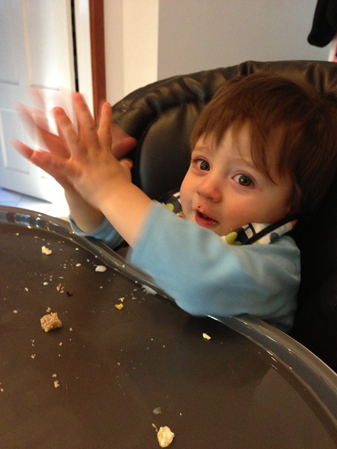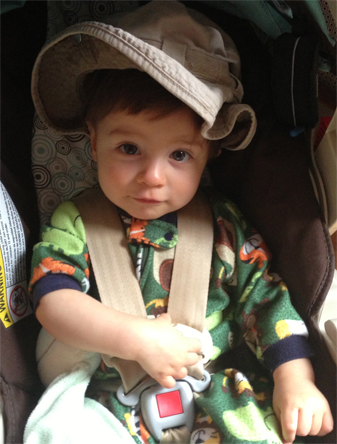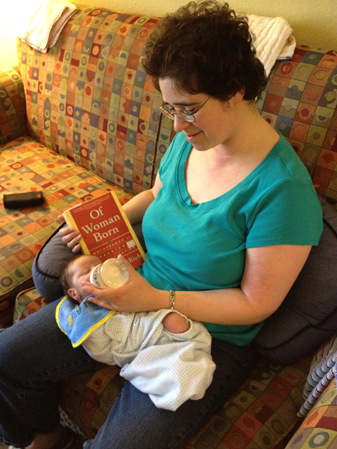“Jesus died for your sins” was the best news imaginable when I was taking my first steps out of an abusive family.
As is common for a traumatic enmeshment like ours, my bio mother and I were both under the delusion of being each other’s savior. She thought I was the meaning of her life, her greatest accomplishment, her sole fulfillment. This adulation carried a high price, however. When she was overwhelmed by her own unprocessed sadness and anger, she believed that I, the center of her psychic world, must have caused those feelings. I must not have been loving, respectful, or obedient enough.
It’s natural enough that I would grow up believing her myth about me, as parents are their children’s first gods. But the same dynamic develops between two adults in an abusive-codependent marriage, too. The abusive partner knows how to leaven her dominance with enough displays of helpless neediness that her spouse feels duty-bound to stay.
Abusers attract white knights the way Sleeping Beauty’s briar hedge attracted princes–99% of whom got skewered, don’t forget. What a power trip to be the rescuer, the only one who’s able to heal the broken beloved. I say this not to victim-blame but to illuminate an escape route that many enablers either can’t imagine or don’t feel they deserve: just consider, for a moment, basing your self-worth on something other than this relationship.
So what does this have to do with the Atonement? Well, to me, “Jesus died for your sins” meant that my fundamental okay-ness as a human being, my right to exist, no longer depended on being perfect in another person’s eyes. Jesus, who outranked even my mother, had already decided that I was lovable as an imperfect person. I was actually more free to repent of particular errors because I no longer had to be ashamed of the general truth that I was fallible.
Moreover, “Jesus died for your sins”, as addressed to my mother and the world at large, meant that I didn’t have to die for their sins anymore. The burden of their okay-ness was something I could now hand off to God.
It’s this second point that I want to explore further in this post, as there’s great confusion about it in Christian literature. I’m concerned that we aren’t taught to distinguish between imitating Christ and substituting for him.
Imitation of Christ seems pretty straightforward when it comes to the Matthew 25 checklist of social justice. Heal the sick, feed the hungry, visit the prisoners, stand with the marginalized. We can reasonably disagree about how best to do this, but not whether to do it. Most of the time, this should be enough to keep us disciples busy.
The tricky part comes when we consider imitating other concepts we associate with Christ. Forgiveness. Redemption. Sacrifice. This is where we need to be much more careful that we are not usurping the Savior’s unique functions and thereby minimizing or enabling abuses of power.
This dilemma is especially acute for Christian fiction writers. Indeed, it’s one of the chief difficulties I need to sort out before I can resume writing the Great American Gay Christian Abuse Survivor Novel, a/k/a Two Natures.
What makes a novel “Christian”? Doesn’t it have to include, at a minimum, some characters modeling Christ-like behavior and enacting Christian values? But then don’t we run a terrible risk of mistaking the sign for the thing signified, and telling a story where one person functions as another’s savior in a co-dependent, idolatrous, and misleading way? On the other hand, when we tell the story through a Calvinist lens of total depravity, all the characters become too helpless and self-loathing to propel the plot to a resolution. (Trust me, I’ve tried this.)
The genre of mainstream realist fiction adds its own constraints. It takes place in a naturalistic universe, a narrative space where supernatural interventions are excluded, like the scientist’s laboratory. Generally, these constraints strengthen the work. It’s lazy writing to have an angel drop in and solve all your characters’ problems. Miraculous revelations are also less useful to the reader seeking guidance, since those are rare gifts in real life. Most of the time we have to look for the divine sparks in regular human behavior, something that the best fiction can teach us to do. However, realist fiction doesn’t have an obvious way to depict that God exists in any dimension except in other people. This heightens the danger that the story will encourage us to mistake Christians for Christ.
Two of my latest fiction reads exemplify the worst and the best approaches to illustrating redemption in the realist genre.
The first and worst is Jason F. Wright’s NY Times bestseller The Wednesday Letters, an inspirational soap-opera novel about family secrets. (Basically the same genre as Jodi Picoult, only written by a conservative Christian guy.) Spoiler alert: the drama revolves around a woman who bore her rapist’s baby, kept this a secret from her children (including the aforesaid baby) and the community, and forgave the perpetrator, who turned his life around in prison and became a family friend and trusted pastor. When the secret comes out after her death, the only thing her adult children can talk about is what a saint she was to forgive the rapist, and how we are all obligated to forgive him because Jesus did. And look how much good he did as a pastor afterward! Oh, the power of forgiveness. Tra la la.
I’m picking on this book because it’s far from exceptional. I hear this same invalidating narrative about abuse and sexual assault from many religious people. It’s basically a perpetrator-centered story, using the victim as a foil for his personal growth. The amount of trauma awareness here is negative zero. We’re supposed to be so moved by his transformation that no one asks questions like: Did keeping the rape secret, in order to give the perpetrator a fresh start, make the mother feel ashamed and impede her healing? How could it not harm her relationship with her children? Was it really a responsible choice to not tell her small-town community that their new pastor is a convicted rapist? How can she be 100% sure that he’s not going to re-offend?
I’m not saying abusers never repent, or that they should never be forgiven when they do. I’m saying that saving their souls is not the victim’s job. The perpetrator’s redemption is a matter between himself and Christ. Whatever happens there, he will never be entitled to his victim’s trust, continued contact, or complicity in his secrets.
The Wednesday Letters is bad theology because it puts a Christian stamp of approval on the co-dependent idolatry that characterizes an abusive relationship. It drafts an unwilling and powerless person into the role of suffering servant that Christ took on voluntarily from a position of supreme power.
The title story of Catholic fiction writer Arthur Powers’s splendid new collection, A Hero for the People: Stories of the Brazilian Backlands, offers a far more compelling picture of human cooperation with Christ’s redemptive work. These tales spring from Powers’s work with the Peace Corps, helping subsistence farmers and rural workers resist being forced off their land by wealthy speculators in league with a corrupt government. (A scenario similar to the classic Western movie “Shane“.)
In this story, a humble, slightly nebbish-y, but dedicated monk is reassigned to a remote mission outpost which the diocese plans to close as soon as its ancient priest dies. Brother Michel starts listening to the locals’ tales of oppression and takes up their cause despite threats against his life. But all the while, he daydreams and prays for a hero who would ride into town and rout the overwhelming forces arrayed against them, like Shane the gunslinger. Their nonviolent resistance staves off the land seizure for another day, but there’s no Hollywood ending. Brother Michel knows he can only give it his utmost while turning the outcome over to God. Still, he prays for a hero, while the reader sees the sweet irony that the monk is the answer to his own prayer, a title that he would never dare claim for himself.
What makes Brother Michel’s imitation of Christ genuine and beneficial to the reader? Two things. Number one, it leaves room for God’s further action. The monk can’t fix the problem all by himself. He may not be able to fix it at all, but with God’s help, he’s brave enough to do his part. Number two, he isn’t consciously playing the role of savior, an ego trip that tempts a person to make himself the center of someone else’s story. “A Hero for the People” is not a set-up to show what a great person Brother Michel becomes. It’s about how he makes himself available in a Christ-like way to the oppressed, not about how he transforms the oppressors’ hearts, although that possibility is left open as well.
Unlike the rape in The Wednesday Letters, the exploitation of the poor is the central Christian concern of “A Hero for the People”. We are invited, perhaps commanded, to help the Brother Michels of the world combat this evil, rather than congratulate ourselves for forgiving it.
For more on the Christian fiction writer’s dilemmas, see my 2008 post, “Who Cares for the Reader’s Soul?“



